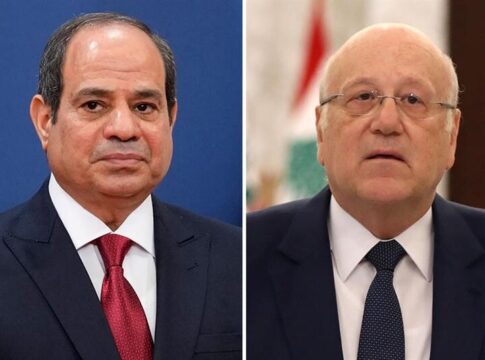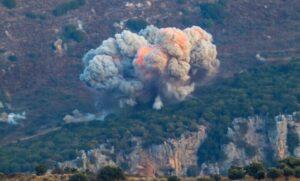During the conversation, President Al-Sisi expressed solidarity with Lebanon and highlighted the urgency of establishing a “comprehensive and permanent ceasefire” in both Lebanon and Gaza. He warned that continued aggressive actions against Palestine and Lebanon could destabilize the region and pose a threat to global peace.
Prime Minister Mikati expressed his gratitude for Egypt’s support, acknowledging Cairo’s crucial role in maintaining regional stability. He noted that Egypt’s swift response and assistance are vital as Lebanon grapples with the fallout from the ongoing conflict.
The international community has voiced growing concerns about the potential for the Gaza conflict to expand into a wider regional war. In recent statements, United Nations Secretary-General António Guterres called for an immediate ceasefire, underscoring the humanitarian impact of the conflict and urging all parties to engage in dialogue to resolve differences peacefully.
Similar sentiments have been echoed by European Union High Representative for Foreign Affairs and Security Policy, Josep Borrell, who emphasized the need for de-escalation and a return to negotiations. “The cycle of violence must end. Diplomatic efforts need to be intensified to prevent further loss of life and regional destabilization,” Borrell stated in a press release.
Meanwhile, U.S. Secretary of State Antony Blinken, during a press briefing, reiterated the United States’ commitment to working with international partners to mediate a peaceful resolution. “We are deeply concerned about the humanitarian crisis and the security implications for the broader region. The U.S. is actively engaging with both Israeli and Lebanese leaders to encourage restraint and dialogue,” Blinken remarked.
In a joint statement, the Arab League and the Organization of Islamic Cooperation (OIC) urged for a multilateral approach to address the crisis, calling on the international community to facilitate humanitarian aid and support diplomatic efforts to achieve lasting peace.
According to a detailed report from Reuters, world leaders are exploring various diplomatic solutions to contain the situation. French President Emmanuel Macron has proposed an international conference aimed at fostering dialogue and establishing humanitarian corridors, while German Chancellor Olaf Scholz has emphasized the importance of a two-state solution as a long-term resolution.
In a pivotal development, Saudi Arabia has recently adopted a new coalition dedicated to supporting a two-state solution for the Palestine-Israel conflict. This coalition, as detailed in a report from the United States Department of State, is focused on fostering diplomatic relations and regional stability. Saudi Arabia’s commitment to the coalition marks a significant shift in its foreign policy, aiming to mediate and resolve long-standing tensions in the region.
The coalition involves several key regional players, including the United Arab Emirates, Bahrain, and Egypt, all of whom are committed to supporting a peaceful resolution based on the pre-1967 borders. Saudi Arabia’s Crown Prince Mohammed bin Salman has been actively promoting the coalition’s objectives, emphasizing the need for a sustainable and just solution that ensures the security and rights of both Israelis and Palestinians.
According to a report from the United Nations, the coalition has already begun to facilitate dialogue between conflicting parties and provide humanitarian assistance to affected areas. This initiative aligns with the broader goals of the international community to achieve peace and stability in the Middle East.
As the situation remains precarious, Egypt’s proactive stance and the international diplomatic community’s calls for peace highlight the urgent need for collective action to prevent further escalation and ensure stability in the region.



